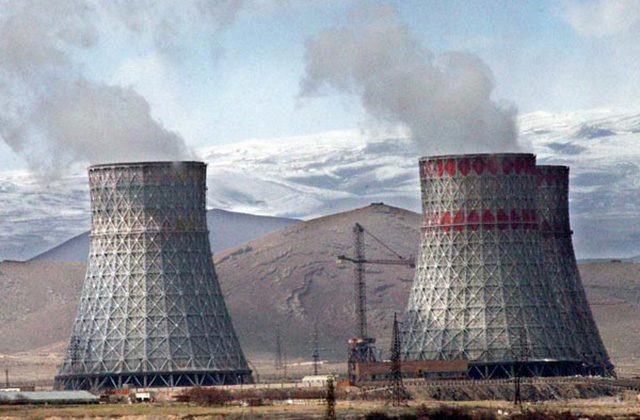When and How Electricity Tariff will Go up?

Reading of Armenia’s official economic statement is quite a useful thing. In the reader it stimulates knowledge acquisition and extension, making the reader more educated and gentle. These allegations are especially true especially in case of information issued by our Ministry of Energy and Public Services Regulatory Commission (PSRC).
The latter held a session on February 24, examined the application submitted to the Ministry of Energy and permitted, “Armenia’s Nuclear Power Plant (NPP) to dispose extra AMD 1 million 537 for 2016-17 tariff period.”
Ordinary reader, for instance, knew, there is 2016-17 academic year. And from the cited sentence he/she learnt there is 2016-17 tariff period as well. Moreover, reading of NPP costs, notices a gentle hint in it, that electricity tariff for that period will change. To be clear—it’ll increase.
Before coming to this, an ordinary reader tries to memorize his/her information on NPP fiscal condition. In order not to remember for himself/herself, Areg Galstyan, long-standing Minister of Energy, personally reminds, that power plant is an expensive pleasure. In grounding recent increase in price, it was officially stated, that NPP obtained a loan comprising USD 270 million from Russia and USD 30 million grant. PSRC gave thorough explanation, stating that the loan is urgent, and, surely, should be included in the tariff.
In response to the question “From where the pest of extra AMD 1 billion 537 expenditure emerged and why shouldn’t it be included in that loan-grant?” the Deputy Minister very gallantly explains, that grant-loan should be used for prolongation of the Plant exploitation. And AMD 1,537 billion should be disposed for other purposes.
For high and necessary purpose of modernization of reactor workshop. “The amount is necessary to engage through loans, as available resources, including the loan and grant allocated by Russia, as well as IAEA technical assistance, don’t serve this purpose (i.e. re-equipment),” the Minister says. To the question “How come, our power engineering specialists didn’t know about this need?” will remain without a reply. Ordinary reader isn’t aware of all that. Instead, it’s explained to him/her that PSRC didn’t agree on these expenditure that simple. Moreover, it was considered as “in favor of the tariff, and the expenditure is regarded not as of exploitation, but an investment one.”
To prevent readers primitive “so what?” question, the Deputy Minister clarifies, “This means, their involvement in the tariff may be divided on several years. In that case noticeable influence on the tariff isn’t observed.” An ordinary reader, surely, might rejoice by likewise fatherly manifestation of caring by our officials, however, figures don’t permit. Per year about 8 billion kWh is produced in Armenia. Approximately 1,5 billion is being exported.
Losses and all other expenses, according to the fixed vulgar tradition, is being distributed of electricity tariff provided for internal consumer.
This means, if the AMD 1,537 was distributed, in terms of PSRC, on one tariff period, probably the tariff would have increased by 23-25 lumas. Our friendly authorities couldn’t put such a heavy burden on economy and population, could they? They’re used to increasing the tariff by AMD 6-7. 23-Luma increase would have been inexcusable and inadmissible for them.
This incredible resolution may raise two strange questions. For instance, “where that AMD 1,537 billion should be found from? For which period and by what interest rate?” “We have to seek for new sources,” explains respectable long-standing Deputy Minister, by saying noting. If you thoroughly read Minister’s explanations, you’d notice that our power engineering specialists don’t anticipate to get the money in form of loan, but of “loans.” Exactly likewise approach makes our reader of official statement cautious, giving ground to suppose that the creditor, allocating USD 3 million, is known, and will provide a debt with comfortable interests.
Being sure, that, the system will anyway return opportune or inopportune financial means through increasing the tariff. Returning a debt has always been considered as issue of honor. Will we, simple consumers let our bureaucrats be ashamed? We won’t, and like a real patriot and citizen we’ll tirelessly suffer another blow of tariff increase. In the end, international economy wasn’t living its best days either. Why we should?
By Ara Galoyan

























